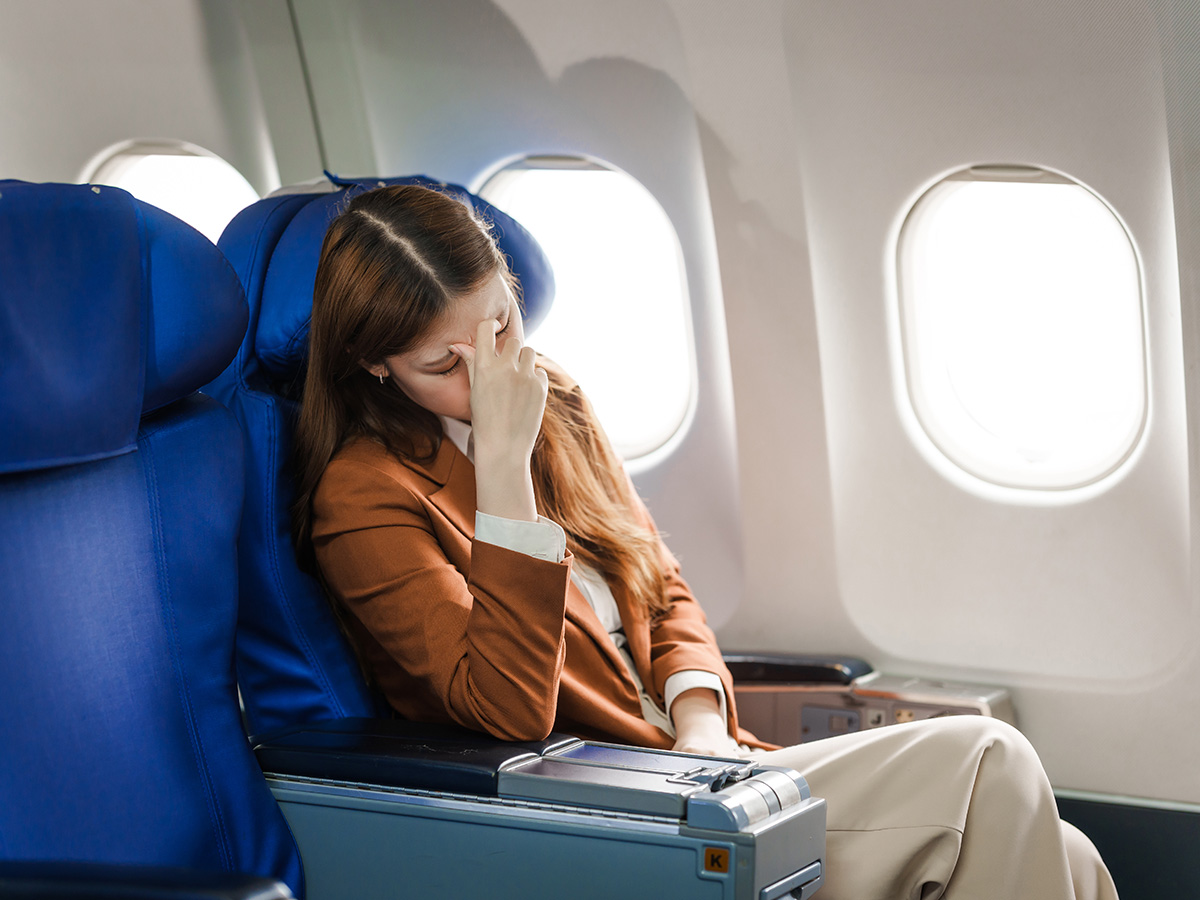 Whether one is traveling to the beach or mountains or visiting family across the country, altitude changes, dry air and even local allergens can take a toll on the ears, noses and throats, especially during air travel.
Whether one is traveling to the beach or mountains or visiting family across the country, altitude changes, dry air and even local allergens can take a toll on the ears, noses and throats, especially during air travel.
“The pressure that builds in the ears and sinuses during travel can quickly turn a relaxing trip into an uncomfortable experience,” said Jessica Grayson, M.D., associate professor in the University of Alabama at Birmingham Department of Otolaryngology. “Proper preparation can help alleviate some of the discomfort.”
Drinking plenty of water helps the body maintain healthy mucous membranes, which serve as the first line of defense for the nose and sinuses. Airplane cabins tend to be extremely dry, so staying hydrated is essential before, during and after any flight.
Grayson says planning with hand sanitizers, refillable water bottles and travel-size versions of lip balm is important.
“If you perform sinus rinses and have concerns about access to distilled water, do not fret; bottled water works just fine,” Grayson said. “If you typically use allergy treatments or oral or topical medications, be sure to pack them.”
Keep nasal passages moist
Dry air can irritate the nasal tissues and increase risk of congestion, bleeding or sinus pressure. A saline nasal spray can help keep moisture in the nose and prevent blockages. These are safe, easy to pack, and especially helpful before boarding and landing. For those who are prone to dryness, coconut oil is a good alternative to keep the nose moist. Using a small pea-size amount inside the nose can prevent the discomfort of a dry nose.
Balance ear pressure
The quick change in air pressure when the plane climbs or descends often results in a sudden “pop.” To ease the transition, simple actions like swallowing, yawning or chewing gum can help open the small passageways in the ears, called Eustachian tubes. This allows the pressure to equalize more comfortably.
Use decongestants wisely
When wrestling with congestion before a flight, a nasal decongestant can help clear the airways and reduce pressure buildup during takeoff and landing. However, use them with caution. Overuse can worsen congestion and dry out the nasal passages, making symptoms harder to manage mid-trip. Always consult a doctor or medical provider for recommendations, and avoid using these products for more than a few days in a row.
Skip the flight when sick
Flying with a cold, sinus infection or even mild congestion can worsen symptoms and increase the risk of barotrauma, a painful condition caused by pressure buildup in the ears. If you are feeling unwell, it is wise to hold off on flying until recovery is made in full to prevent making a short trip into a long-term problem.